June 21, 2025 | 16:38 GMT +7
June 21, 2025 | 16:38 GMT +7
Hotline: 0913.378.918
June 21, 2025 | 16:38 GMT +7
Hotline: 0913.378.918
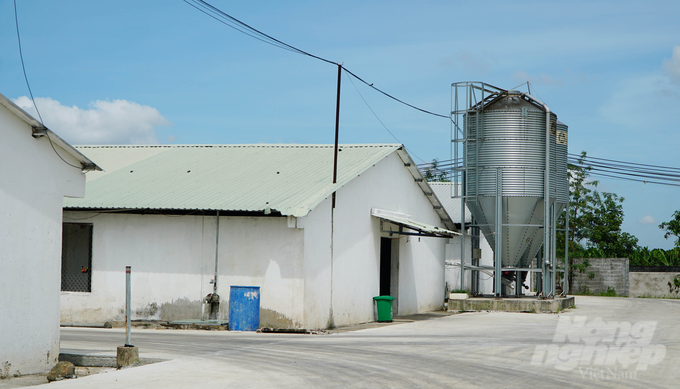
Ba Ria - Vung Tau has 34 concentrated livestock farming areas associated with the application of modern technologies. Photo: Le Binh.
In recent years, many livestock farming households in Ba Ria - Vung Tau province have promoted mechanization, applied new technology and automation in livestock farming. This has brought about many positive results, not only helping people increase their income but also contributing to solving the problem of labor, cost reduction, ensuring a healthy growth environment for livestock and the sustainable development of the industry.
Vu Van Thanh's chicken farm (Phuoc Loi hamlet, Phuoc Hoi commune, Dat Do district) sells nearly 100 tons of commercial chicken to the market every year. The farm has eight closed chicken raising areas, the internal temperature is adjusted according to the age of the chickens, and the food and water system is completely automatic.
“Applying technology to the farming process will reduce the impact of any possible damage. To be more specific, we can control everything, including the matter of pathogens. If we raise livestock in the traditional way, the residual pathogens outside cannot be controlled, and the farmer's economy will very likely take a hit,” Thanh said.
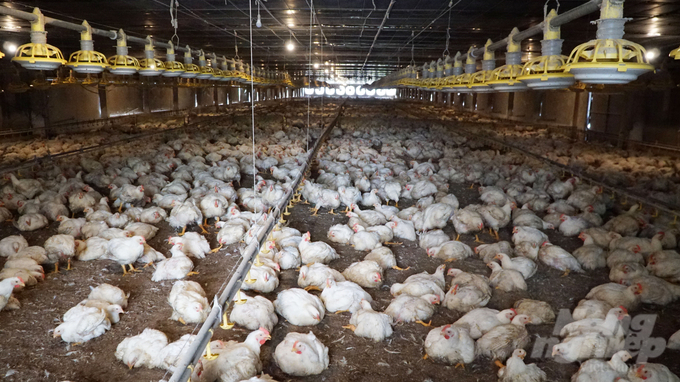
The model of raising white-feathered chickens in cold cages of Long Thanh Phat High-Tech Chicken Farming Cooperative in Xuyen Moc district. Photo: Le Binh.
Long Thanh Phat High-Tech Chicken Farming Cooperative currently has four high-tech chicken farms with a scale of 720,000 chickens in Chau Duc and Xuyen Moc districts. These farms are participating in a chain with Koyu & Unitek Co., Ltd. and De Hues Co., Ltd. Netherlands to produce and supply chicken products for the domestic market and export to Japan.
“The chickens are raised according to Japanese export standards, so we always put disease control and the health of white-feathered chickens first. With about 3 million chickens per batch, we have tight management and all breeding processes are very transparent. Bringing technology into production helps us save labor, increase productivity while reducing production costs,” said Le Van Quyet, Director of the cooperative.
As of early October 2024, Ba Ria - Vung Tau has 177 livestock and poultry farms, 132 of which operate high-tech livestock farming. The automation technologies used mainly include cold barn systems in farm design, biological products, biological bedding, imported parent breeds, and temperature, light, and humidity adjustments.
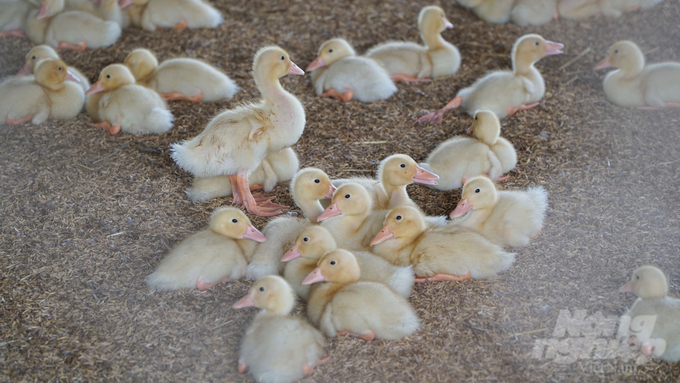
Applying high technology not only helps livestock stay healthy throughout the growth process but also helps farm owners reduce input costs. Photo: Le Binh.
The livestock industry in Ba Ria - Vung Tau province has recently focused on transforming from small-scale to large-scale farming associated with the application of high technology and value chain linkage. The aim is to improve economic efficiency and develop the province's sustainable livestock industry.
The province has planned 34 concentrated livestock farming areas in Ba Ria city, Phu My town and Dat Do, Chau Duc, Xuyen Moc and Long Dien districts. High-tech farms are also built far from residential areas to ensure disease prevention and control.
“With the application of high technology in livestock farming, these farms not only ensure that their livestock are safe from disease but are also changing traditional farming practices. We believe that these farms will still ensure production plans and food productivity to serve the market at the end of the year,” said Nguyen Xuan Trung, Head of Ba Ria - Vung Tau Sub-Department of Livestock Production and Animal Health.

The surveillance camera and health system in the white-feathered chicken farm both save manpower and ensure timely medical intervention. Photo: Le Binh.
In order to increase the proportion of high-tech livestock products, Ba Ria - Vung Tau continues to implement credit policies, encouraging businesses to invest in agriculture. For small and medium-sized livestock models, Ba Ria - Vung Tau Department of Agriculture and Rural Development implements loans to encourage the development of high-tech agriculture and clean agriculture.
Some farms in the province are also paying more attention to animal welfare. This is an indispensable factor in sustainable livestock farming. Animal welfare also helps livestock become less dependent on antibiotics, which is an important criterion to meet the technical barriers of some demanding export markets.
The People's Committee of Ba Ria - Vung Tau province also prioritizes investment in infrastructure of planned areas and regions for high-tech agricultural development, training human resources for high-tech agriculture and promoting agricultural trade.
Translated by Samuel Pham
![Turning wind and rain into action: [11] Ten years before storms, after every harvest](https://t.ex-cdn.com/nongnghiepmoitruong.vn/608w/files/news/2025/06/20/z6704423696987_15fd32ffc26d590d204d520c9dac6786-nongnghiep-140922.jpg)
(VAN) With WeatherPlus, every raindrop and every breeze carries a message. And if we learn to listen, the fields will no longer live in fear of the weather.
![Turning wind and rain into action: [10] Advancing accessible climate services for farmers](https://t.ex-cdn.com/nongnghiepmoitruong.vn/608w/files/linhnhp/2025/06/20/1911-z6704423696987_15fd32ffc26d590d204d520c9dac6786-nongnghiep-161854.jpg)
(VAN) Not only does it help farmers 'avoid droughts and rains,' the development of agricultural climate services also enhances their ability to proactively adapt to a rapidly changing climate.
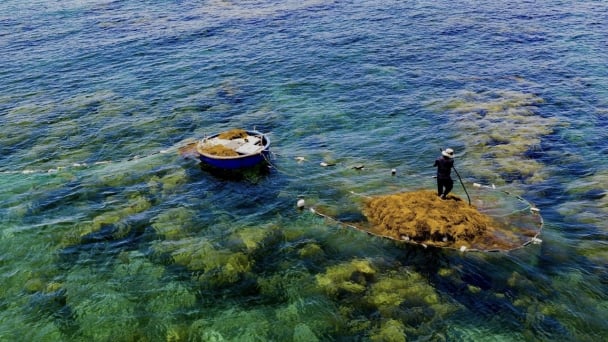
(VAN) With international assistance, the harvesting of sargassum seaweed in Quang Ngai has become increasingly regulated, thereby safeguarding marine life and ensuring the stability of coastal communities' livelihoods.
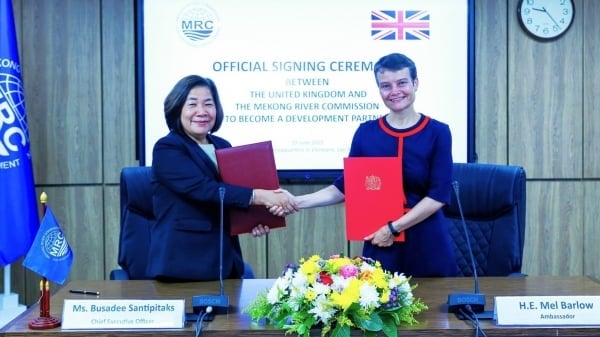
(VAN) On June 19, the United Kingdom officially became a Development Partner of the Mekong River Commission.

(VAN) Biodiversity is being threatened by traditional remedies made from wildlife. Traditional medicine and humans must change to live in harmony with nature.

(VAN) Agrifood investment and finance solutions for people and the planet.

(VAN) Microplastic contamination has become pervasive in seafood, posing unprecedented challenges for food safety and marine ecosystems.